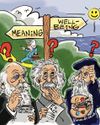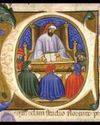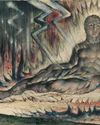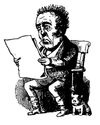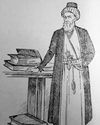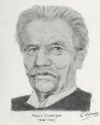Philosophy Now Magazine - December 2025 / January 2026

Holiday Sale
1767430799
Go Unlimited with Magzter GOLD
Read Philosophy Now along with 10,000+ other magazines & newspapers with just one subscription
View CatalogSubscribe only to Philosophy Now
Cancel Anytime.
(No Commitments) ⓘIf you are not happy with the subscription, you can email us at help@magzter.com within 7 days of subscription start date for a full refund. No questions asked - Promise! (Note: Not applicable for single issue purchases)
Digital Subscription
Instant Access ⓘSubscribe now to instantly start reading on the Magzter website, iOS, Android, and Amazon apps.
Verified Secure
payment ⓘMagzter is a verified Stripe merchant.
In this issue
December 2025 / January 2026
Philosophy Now Magazine Description:
Philosophy Now is a lively, international newsstand magazine for everyone interested in ideas. It aims to corrupt innocent citizens by convincing them that philosophy can be exciting, worthwhile and comprehensible, and also to provide some light and enjoyable reading matter for those already ensnared by the muse, such as philosophy students and academics.
Philosophy Now appears every two months. It contains articles on all aspects of Western philosophy, as well as book reviews, letters, news, cartoons, and the occasional short story.
Since its small-scale launch in Britain in 1991, Philosophy Now has grown to become the most widely-read philosophy periodical in the English language. Philosophy Now is independent of all groups and has no intentional editorial bias except for a passionate conviction that philosophy is a Good Thing.
Recent issues

October/November 2025

August/September 2025

June/July 2025

April/May 2025

February/March 2025

December 2024 / January 2025

October/November 2024

August/September 2024

June/July 2024

April / May 2024

February/March 2024

December 2023 / January 2024

October/November 2023

August/September 2023

June/July 2023

April/May 2023

February/March 2023

December 2022 / January 2023

October/November 2022

August/September 2022

June / July 2022

April/May 2022

February/March 2022

December 2021 / January 2022

October/November 2021

August/September 2021

June/July 2021

April/May 2021

February/March 2021
Related Titles

T3 UK

Autocar UK

Good Food UK

BBC Gardeners World

National Geographic Traveller (UK)

Ideal Home UK

Homes & Gardens

Cycling Plus UK

Country Homes & Interiors

Olive

Homes & Antiques

The Scots Magazine

Stuff UK

Gardens Illustrated

BBC Countryfile Magazine

Kitchen Garden

Psychologies UK

Back Street Heroes

Ireland's Homes Interiors & Living Magazine

Who Do You Think You Are? Magazine

Ultimate Guide to Amazon Kindle

The Legend of Harley Davidson

Green Living Guide

Fred Dibnah's World of Steam

Practical Reptile Keeping

Vantage

The Great Outdoors

RCM&E

Coast

Model Boats





